Related Research Articles
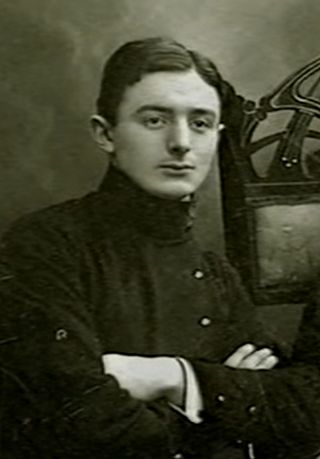
Dziga Vertov was a Soviet pioneer documentary film and newsreel director, as well as a cinema theorist. His filming practices and theories influenced the cinéma vérité style of documentary movie-making and the Dziga Vertov Group, a radical film-making cooperative which was active from 1968 to 1972. He was a member of the Kinoks collective, with Elizaveta Svilova and Mikhail Kaufman.
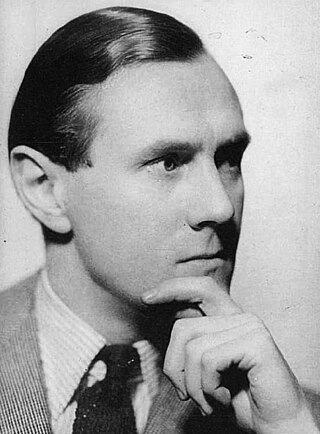
Patrick Victor Martindale White was a British-born Australian writer who published 12 novels, three short-story collections, and eight plays, from 1935 to 1987.

Henry Graham Greene was an English writer and journalist regarded by many as one of the leading novelists of the 20th century.
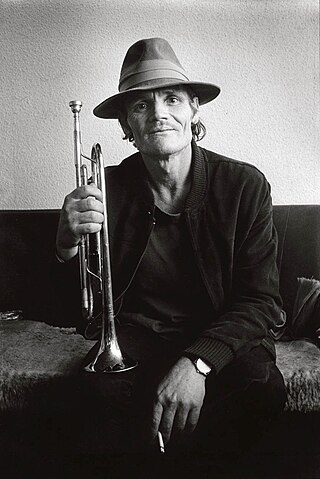
Chesney Henry "Chet" Baker Jr. was an American jazz trumpeter and vocalist. He is known for major innovations in cool jazz that led him to be nicknamed the "Prince of Cool".
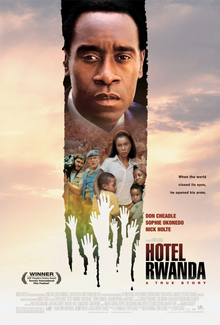
Hotel Rwanda is a 2004 docudrama film co-written and directed by Terry George. It was adapted from a screenplay by George and Keir Pearson, and stars Don Cheadle and Sophie Okonedo as hotelier Paul Rusesabagina and his wife Tatiana. Based on the Rwandan genocide, which occurred during the spring of 1994, the film documents Rusesabagina's efforts to save the lives of his family and more than 1,000 other refugees by providing them with shelter in the besieged Hôtel des Mille Collines. Hotel Rwanda explores genocide, political corruption, and the repercussions of violence.
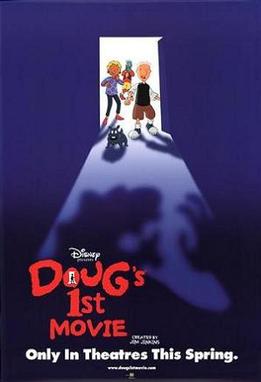
Doug's 1st Movie is a 1999 American animated comedy film based on the Disney-produced episodes of the animated television series Doug. The film was directed by Maurice Joyce, and stars the regular television cast of Tom McHugh, Fred Newman, Chris Phillips, Constance Shulman, Frank Welker, Alice Playten, Guy Hadley, and Doris Belack. It was produced by Walt Disney Television Animation and Jumbo Pictures with animation provided by Plus One Animation, and released by Buena Vista Pictures on March 26, 1999.
Pál Fejős, known professionally as Paul Fejos, was a Hungarian-American director of feature films and documentaries who worked in a number of countries including the United States. He also studied medicine in his youth and became a prominent anthropologist later in life. During World War I, Fejos worked as a medical orderly for the Imperial Austrian Army on the Italian front lines and also managed a theater that performed for troops. After the war, he returned to Budapest and eventually worked for the Orient-Film production company. He began to direct films in 1919 or 1920 for Mobil Studios in Hungary until he escaped in 1923 to flee the White Terror and the Horthy regime. He made his way to New York City and then eventually to Hollywood where he began production on his first American feature film, The Last Moment, in October 1927. The film proved to be popular, which allowed him to sign with Universal Studios. After a number of other successful films, Fejos left America in 1931 to direct sound films in France. In 1941, he stopped making films all together and became the director of research and the acting head of the Viking Fund.

Conquest is a 1937 American historical-drama film directed by Clarence Brown and starring Greta Garbo, Charles Boyer, Reginald Owen. It was produced and distributed by Metro-Goldwyn-Mayer. It tells the story of the Polish Countess Marie Walewska, who becomes the mistress of Napoleon in order to influence his actions towards her homeland. The supporting cast includes Alan Marshal, Henry Stephenson, Leif Erickson, Dame May Whitty, George Zucco, and Maria Ouspenskaya.

Sir Roy Colin Strong, is an English art historian, museum curator, writer, broadcaster and landscape designer. He has served as director of both the National Portrait Gallery and the Victoria and Albert Museum in London. Strong was knighted in 1982.

"Tears in rain" is a 42-word monologue, consisting of the last words of character Roy Batty in the 1982 Ridley Scott film Blade Runner. Written by David Peoples and altered by Hauer, the monologue is frequently quoted. Critic Mark Rowlands described it as "perhaps the most moving death soliloquy in cinematic history", and it is commonly viewed as the defining moment of Hauer's acting career.

Way Down East is a 1920 American silent romantic drama film directed by D. W. Griffith and starring Lillian Gish. It is one of four film adaptations of the melodramatic 19th century play of the same name by Lottie Blair Parker. There were two earlier silent versions and one sound version in 1935 starring Henry Fonda. Griffith's version is particularly remembered for its climax in which Gish's character is rescued from doom on an icy river.

The Last Performance is a 1929 American film directed by Paul Fejos and starring Conrad Veidt and Mary Philbin. The film was made in two version: a silent version and Movietone version complete with music, talking sequences, and sound effects with the talking sequences were confined only to the last reel.

The Man Who Laughs is a 1928 American romantic drama silent film directed by the German Expressionist filmmaker Paul Leni. The film is an adaptation of Victor Hugo's 1869 novel of the same name, and stars Mary Philbin as the blind Dea and Conrad Veidt as Gwynplaine. The film is known for the grotesque grin on the character Gwynplaine's face, which often leads it to be classified as a horror film. Film critic Roger Ebert stated "The Man Who Laughs is a melodrama, at times even a swashbuckler, but so steeped in expressionist gloom that it plays like a horror film."
Borderline is a 1930 film, written and directed by Kenneth Macpherson and produced by the Pool Group in Territet, Switzerland. The silent film, with English inter-titles, is primarily noted for its handling of the contentious issue of inter-racial relationships, using avant-garde experimental film-making techniques, and is today very much part of the curriculum of the study of modern cinematography.

Lonesome is a 1928 American comedy drama part-talkie film directed by Paul Fejös, and starring Barbara Kent and Glenn Tryon. Its plot follows two working-class residents of New York City over a 24-hour-period, during which they have a chance meeting at Coney Island during the Independence Day weekend and swiftly fall in love with one another. It was produced and distributed by Universal Pictures.

Le Château hanté, released in the United States as The Devil's Castle and in Britain as The Haunted Castle, is an 1897 French short silent film directed by Georges Méliès. It is a remake of a previous film by Méliès, The House of the Devil. The 1896 original, which was released in the United States as The Haunted Castle and in Britain as The Devil's Castle, is sometimes confused for the 1897 version.
Lord Arthur Saville's Crime is a 1920 Hungarian silent crime film directed by Pál Fejös and starring Ödön Bárdi, Lajos Gellért and Margit Lux. It was also released as both Mark of the Phantom and Lidercnyomas. The film was based on the 1891 short story Lord Arthur Savile's Crime by Oscar Wilde. It was one of Pal Fejos' earliest films and is now considered lost. It was photographed by Jozsef Karban.
George Albert "Scotty" Bowers was an American entrepreneur, active from 1945 to 1980 procuring prostitutes for Hollywood industry insiders, many closeted about bisexual or homosexual liaisons. Bowers was described having "a savant-like quality: a result of his refusal to be embarrassed by sex."
Pithavum Kanyakayum, officially titled in English as Daddy, You Bastard, is a 2013 Malayalam film directed by Rupesh Paul and N. K. Sajiv Menon. The story is about a middle-aged man who spends the night with a girl who happens to be his daughter's classmate. Short story writer Indu Menon has written the story while her husband, Rupesh Paul, has written the script and dialogue for the film. The cast include M. G. Sasi, director of the award-winning film Atayalangal, Krupa and Sasi Kalinga. The film premiered in the Marche du Film section of 2010 Cannes Film Festival. It released in theatres on 4 October 2013.
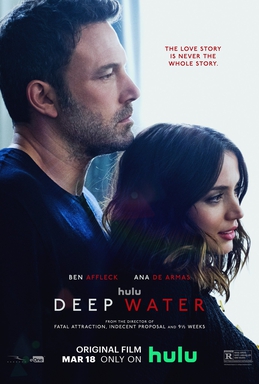
Deep Water is a 2022 erotic psychological thriller film directed by Adrian Lyne, from a screenplay by Zach Helm and Sam Levinson, based on the 1957 novel of the same name by Patricia Highsmith. The film stars Ben Affleck and Ana de Armas, with Tracy Letts, Lil Rel Howery, Dash Mihok, Finn Wittrock, Kristen Connolly, and Jacob Elordi appearing in supporting roles. It marks Lyne's return to filmmaking after a 20-year absence since his last film, Unfaithful (2002).
References
- ↑ The AFI Catalog of Feature Films 1893-1993:The Last Moment
- 1 2 3 Thompson, Frank (1996). Lost Films: Important Movies That Disappeared. Citadel Press. pp. 163–164. ISBN 0-8065-1604-6.
- ↑ "The Last Moment". silentera.com. Retrieved March 4, 2013.
- ↑ The Last Moment at TheGreatStars.com; Lost Films Wanted(Wayback Machine)
- ↑ Merritt, Greg. “Celluloid Mavericks.” Pages 53-54.Thunder’s Mouth Press. ISBN 1-56025-232-4